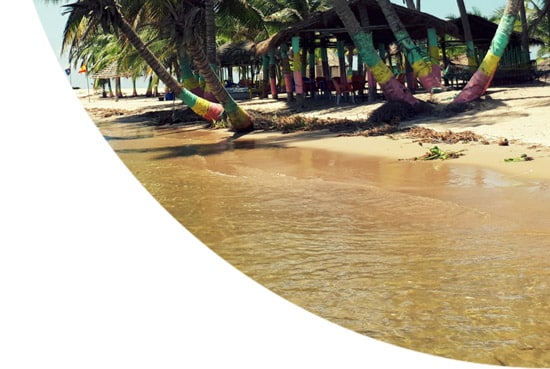Rift Valley fever (RVF) is an acute, fever-causing viral disease that usually affects domesticated animals (such as cattle and sheep), but can also infect and cause illness in humans. The majority of human infections are caused by direct or indirect contact with the blood or organs of infected animals.


Travel Vaccinations for Ghana
Recommended Vaccines for Ghana
The level of protection needed depends on your medical history and travel itinerary. Book now to get a personalised recommendation from our specialist travel nurses. The consultation costs £20 plus any vaccines you decide to take.
Vaccines Advised To Some Ghana Visitors
Flexible appointments with no upfront payment
Book Now
Destination Information for Ghana
Ghana is located in West Africa and has so much to offer visitors. While on holiday and travelling around this beautiful country, make sure you enjoy some real African culture. A great place to visit when travelling in Ghana is the Magnori Eco-Village, where most of the homes are made of mud and locals cook food by an open fire. Ghana is hot and humid throughout the year but does have a dry season from November until April, while the wet season is April until June.
The Ghanaian capital of Accra has a traditional market to stroll around and enjoy. Stalls sell a variety of locally produced handcrafted goods; meaning you can take something a little different home from your holiday. In addition to plenty of forts and castles to visit, there are also some beautiful beaches, perfect for sunbathing and relaxing. Also, don’t forget to take in the breathtaking wildlife, visit the bars and restaurants, and try some local delicacies.
Travel vaccinations are essential when visiting Ghana, with a Yellow Fever vaccination certificate required upon entry to the country for anyone above 9 months old. It is also advisable to receive Hepatitis A, Typhoid along with tetanus, diphtheria and polio vaccine. Ghana is a high-risk country for Rabies, Meningitis, hepatitis B and in places Cholera. Beside non-vaccine related illnesses. You should also be prepared for the risk of malaria, and at London Travel Clinic we provide a range of antimalarials, so make sure to book a consultation early to talk through your itinerary and complete vaccination schedules.
Infections and Outbreaks frequently change from country to country and by attending our clinics you will be given the most up to date clinical and safety advice from our team of specialists. Our advice to you often includes aspects such as:
- Food and water hygiene
- Insect and animal bite avoidances
- Personal safety
- Sexually transmitted infections
- Sun protection
- Altitude sickness
Malaria and regions within country:
There is a high risk of P.Falciparum malaria in the whole of Ghana. It is advisable to take the necessary precautions to prevent being infected with the disease.
Additional Health Risks Information for Ghana
If you’re planning a trip to Ghana which will last 90 days or longer, you will need to register with the National Identification Authority for a non-citizen Ghana card. While in the country you should carry a copy of your passport with you at all times, and keep the original document somewhere secure. Most visits to Ghana are safe and trouble-free. However, there are incidents of crime targeting tourists, especially theft and other street crime. The capital, Accra, is infamous for bag-snatching and pick-pocketing. Keep a close eye on your valuables at all times, avoid walking alone at night and if you’re driving you should keep car doors and windows locked.
Check specific local information for your Ghanaian destination to find out about any curfews, planned demonstrations or other restrictions in place that could affect your trip. Land disputes and political tensions can arise at any time; however, demonstrations are usually peaceful.
Ghana is high risk for malaria and Yellow fever; it is advisable to book an appointment at a travel clinic to get the necessary vaccines, medications and advice before you travel. Cholera is a risk throughout Ghana, with a recent outbreak in Accra, and areas in the north of the country. Drink only bottled water, and be cautious about food and drink preparation.
Outside of the main towns, medical facilities are inadequate. If you need anything other than basic treatment, it will be necessary to evacuate by air; ensure that you have travel insurance in place that will cover this



